Poison-Alutiiq Word of the Week-July 16th
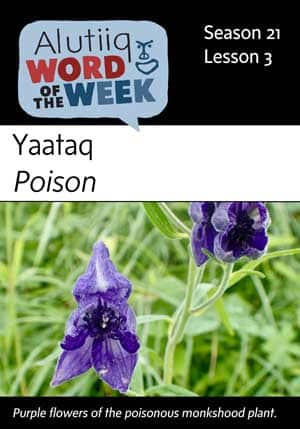
Yaataq—Poison Pitun’illgu una-yaatartuq!—Don’t eat this—it is poisonous! Alutiiq people have long recognized the poisonous qualities of certain local plants. Some…

Yaataq—Poison Pitun’illgu una-yaatartuq!—Don’t eat this—it is poisonous! Alutiiq people have long recognized the poisonous qualities of certain local plants. Some…
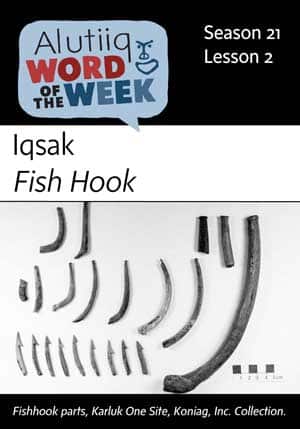
Iqsak—Fishhook Iksak ipegtuq.—The fishhook is sharp. Archaeological sites in the Kodiak Archipelago illustrate that Alutiiq ancestors have harvested marine fish…
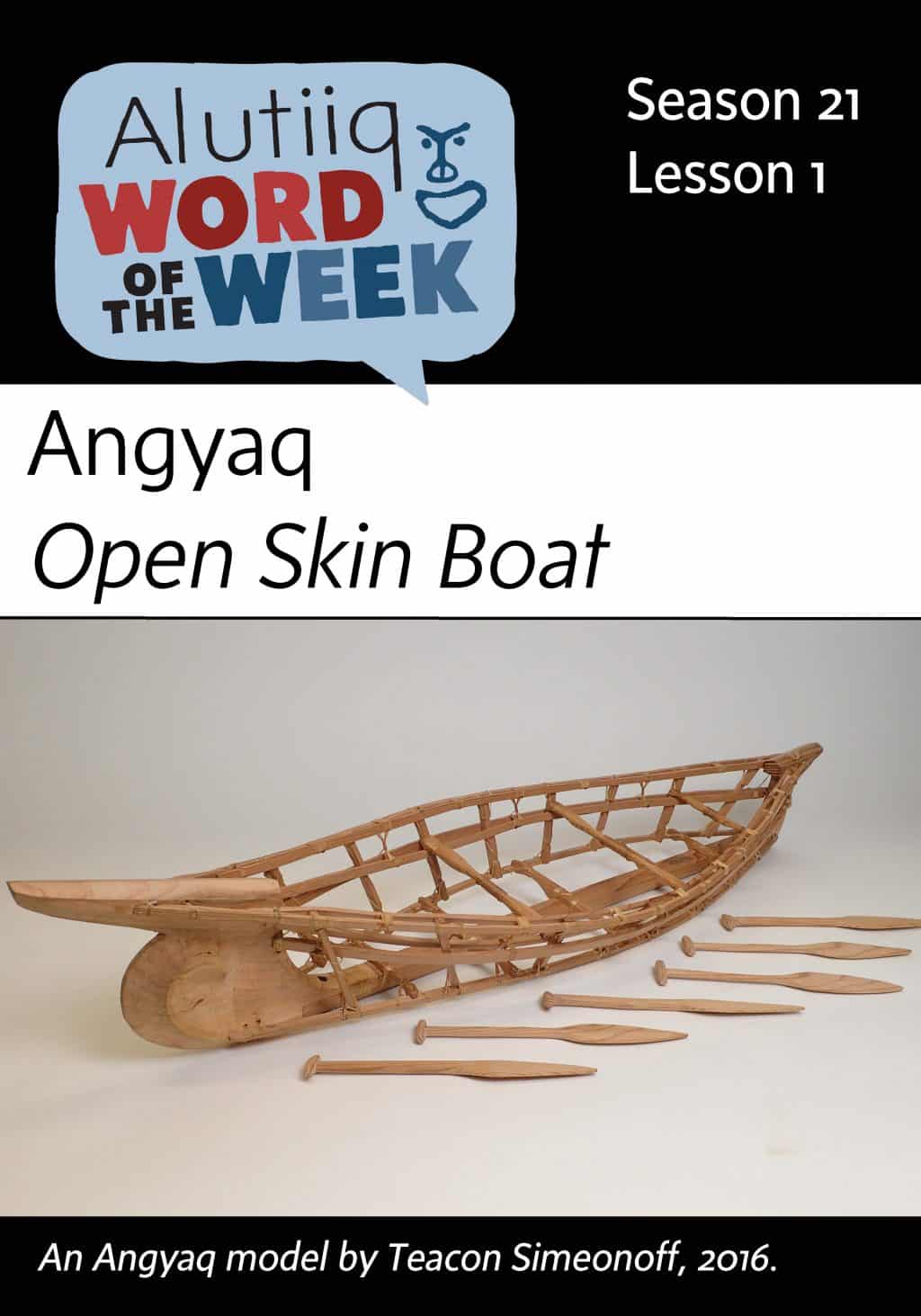
Angyaq—Open Skin Boat Angyakun aiwikutartukut.—We are going (away) by open boat. The Alutiiq angyaq is a large open boat much…
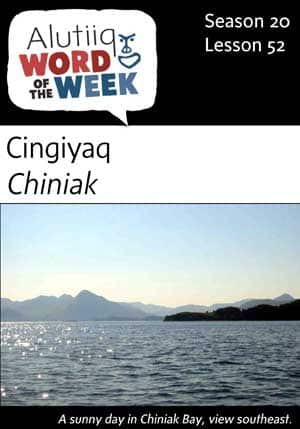
Cingiyaq–Chiniak Cingiyaq yaqsigtuq Sun’amek kaarakun.–Chiniak is far from Kodiak by car. Follow the highway forty-five miles southeast of the city…
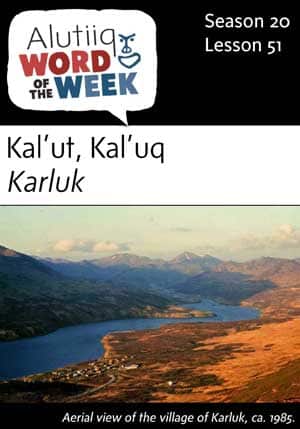
Kal’ut, Kal’uq–Karluk Kal’uni sullianga.–I was born in Karluk. The Alutiiq village of Karluk lies on the southwestern shore of Kodiak…
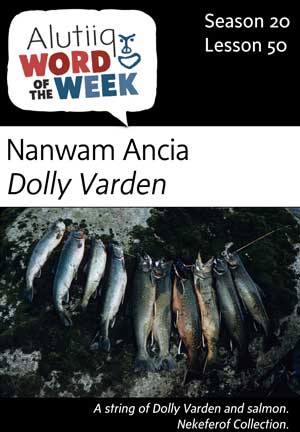
Nanwam Ancia–Dolly Varden Nanwam ancii miktaartut.–Lake trout are always small. Dolly Varden (Salvelinus malma Walbaum) belong to a group of…
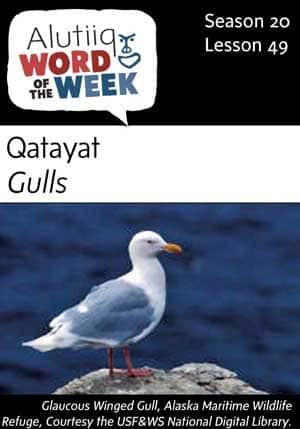
Qatayat–Gulls Qatayat nernertutaartut!–Gulls will eat anything! Glaucous-winged gulls (Larus glaucescens) and Mew Gulls (Larus canus) are familiar residents of Kodiak’s…

Maraq–Bog; Swamp ARapagka nag’art’lliik mararmi. I lost my (2) boots in the bog. The Alutiiq word maraq can be used…
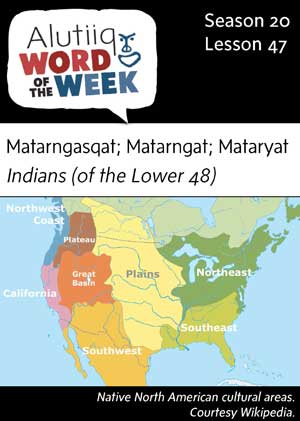
Matarngasqat; Matarngat; Mataryat–Indians (of the Lower 48) Matarngasqat Camani amlertut.–There are a lot of Indians in the Lower Forty-eight. When…
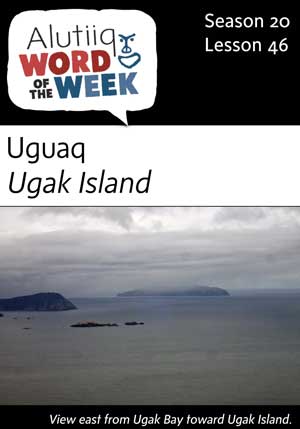
Uguaq–Ugak Island PaRaguutakun uguaq kiturtaarpet.–We always pass Ugak island on the boat. Ugak Island lies at the entrance to Ugak…